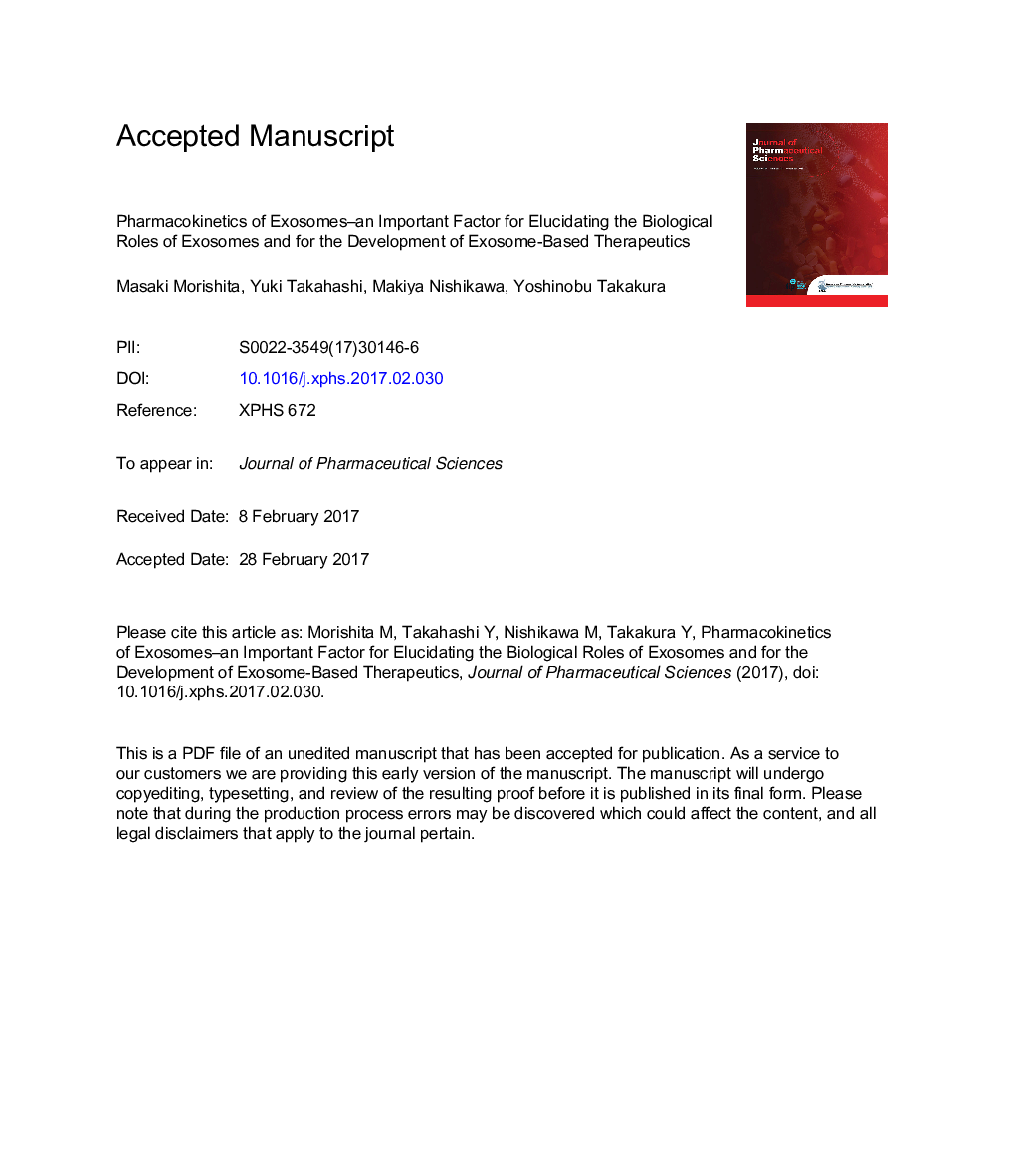| Article ID | Journal | Published Year | Pages | File Type |
|---|---|---|---|---|
| 8513869 | Journal of Pharmaceutical Sciences | 2017 | 20 Pages |
Abstract
Exosomes are small membrane vesicles containing lipids, proteins, and nucleic acids. Recently, researchers have uncovered that exosomes are involved in various biological events, such as tumor growth, metastasis, and the immune response, by delivering their cargos to exosome-receiving cells. Moreover, exosomes are expected to be used in therapeutic treatments, such as tissue regeneration therapy and antitumor immunotherapy, because exosomes are effective delivery vehicles for proteins, nucleic acids, and other bioactive compounds. To elucidate the biological functions of exosomes, and for the development of exosome-based therapeutics, the pharmacokinetics of exosomes is important. In this review, we aim to summarize current knowledge about the pharmacokinetics and biodistribution of exosomes. The pharmacokinetics of exogenously administered exosomes is discussed based on the tissue distribution, types of cells taking up exosomes, and key molecules in the pharmacokinetics of exosomes. In addition, recent progress in the methods to control the pharmacokinetics of exosomes is reviewed.
Related Topics
Health Sciences
Pharmacology, Toxicology and Pharmaceutical Science
Drug Discovery
Authors
Masaki Morishita, Yuki Takahashi, Makiya Nishikawa, Yoshinobu Takakura,
